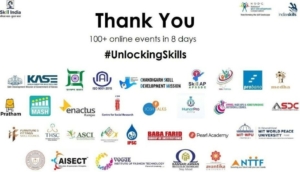Asia Pacific Update: August 13
In today’s edition, we focus on one of the worst-hit industries by the pandemic – F&B – its struggles with the new normal and the creative solutions introduced. Also, read about our work with India’s National Skills Development Council to help Indians gain new skills and stay positive in the midst of the global pandemic.

If you’d like to talk to us about any of these issues or how you can manage issues and prepare recovery plans, please reach out to us here enquiryapac@webershandwick.com.
If you have received this bulletin from a friend or colleague, you can easily subscribe here.
Recovery Spotlight: F&B
One of the worst-hit industries by the pandemic, the Food and Beverage (F&B) sector is lifting shutters and reintroducing dine-in services. The infusion of digital processes in the dining experience and enhanced safety measures will help to create peace of mind among diners and protect F&B staff from getting infected by the virus.
Struggling with the new normal
In Singapore, restaurants have reopened island-wide with social distancing measures such as reduced seating in place. While there has been a spike in the number of people making reservations at eateries, the number of no-shows and last-minute cancellations have surged, hurting restaurant revenues and morale. To reduce the number of diners lingering at eateries after their meals, Malaysian F&B outlets have introduced 90-minute dine-in timeframes. They have also stopped offering facilities such as free WIFI and tv access which helps owners increase turnover and secure more customers amid social distancing restrictions. Following instances of blue-collar workers eating takeaway kerbside or in the rain during the workday in Hong Kong SAR, the government has backpedalled on a previous limitation and went on to allow people to dine in at eateries with two people maximum, for breakfast and lunch, while only offering takeaway options for dinner.
Creative solutions for dining in
South Korea’s government has shared that they will release data on restaurants that follow sanitary guidelines meant to avoid the spread of the virus. The country has been building up a database of over 2300 restaurants that strictly follow sanitary and distancing guidelines and as a result, top mobile carrier SK Telecom Co. plans to reflect this data on its mobile map application to help users find complying eateries in their vicinity. Despite the easing of restrictions on restaurants in Sydney, eateries continue to offer innovative solutions such as digital menus to alleviate uneasiness diners feel about engaging with high touch surfaces. One example is “me&u,” a disk-shaped device about 8cm in diameter, allowing restaurant-goers to look at menus, order and pay for food with their smartphones. This service has reportedly reduced staff workload by 20%. Markets across Southeast Asia, including Indonesia and Singapore, have also rolled out digital menus accessible via QR code. Japanese restaurants chain Saizeriya Co also recently unveiled a method of dining at their restaurants while donning face masks. President Issei Horino uses origami techniques to combine an existing mask and a regular paper napkin. Restaurants across Tokyo continue to utilise mannequins to enforce social distancing among diners.
Blue skies ahead
As of July 1, Thailand pubs and restaurants opened to revive the economy, with the Centre for Covid-19 Situation Administration assessing the viability of allowing the return of normal-sized classrooms, crowds in sports stadiums, all seats to be taken in public transport and meals on flights. Taiwan’s F&B sector posted a 29% monthly sales gain in May to NT$61.9 billion (US$2.1 billion), the largest single-month increase on record. The Ministry of Economic Affairs shared that the outlook for the coming months remains positive.
Methodology
Media analysis of stories covering the following countries: Australia, Cambodia, Hong Kong SAR, Japan, Malaysia, Macau, New Zealand, Philippines, Singapore, South Korea, Taiwan, Thailand and Vietnam
Period covered: 13 July to 13 August 2020
The Work of COVID-19: #UnlockingSkills with the National Skill Development Corporation of India

Throughout the lockdown, the National Skill Development Corporation (NSDC) had received numerous queries on social media requesting help on developing skills and career options. Weber Shandwick was brought in to help NSDC develop #UnlockingSkills which focussed on helping individuals deal with the current situation better while inspiring positivity.
In collaboration with 30 organisations including state government, youth organisations, NGOs, startups and educational institutes, we organised 124 online events ranging from skill-based webinars to motivational talks which helped participants open their minds to building new skills that would be useful in a post-COVID world. These online events took place across social media platforms including YouTube as well as via video conferencing. In addition to the concept development, we also developed all the campaign collaterals and guidelines which were used during these seminars.
The initiative generated 3.7 million impressions and has so far reached over 826,000 people.
About COVID-19 Recovery Report:
– The content of this news bulletin is a summary of publicly available news articles on events and developments related to COVID-19.
– The views and opinions reflected by these headlines do not necessarily represent those of Weber Shandwick.